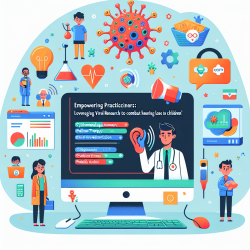The field of mental health is constantly evolving, with new research challenging long-held beliefs and practices. One such study is the "Illness Management and Recovery: One-Year Follow-Up of a Randomized Controlled Trial in Danish Community Mental Health Centers." This study provides critical insights into the effectiveness of the Illness Management and Recovery (IMR) program, a curriculum-based rehabilitation approach for individuals with severe mental illness.
Understanding the IMR Program
The IMR program is designed to help individuals with schizophrenia or bipolar disorder manage their illness and achieve personal recovery goals. It combines psychoeducation with skills training, aiming to improve both clinical outcomes (such as symptom reduction) and personal recovery (such as hope and personal agency).
The Study's Findings
The Danish study involved 198 participants who were either assigned to an IMR group or a control group receiving treatment as usual. The outcomes were assessed over a year, focusing on both clinical and personal recovery measures. Surprisingly, the study found no significant differences between the IMR group and the control group in terms of symptom severity, hospital admissions, or personal recovery metrics.
Implications for Practitioners
These findings suggest that while the IMR program has been widely implemented, its long-term effectiveness may not be as robust as previously thought. For practitioners, this raises important questions about how best to support individuals with severe mental illnesses in achieving meaningful recovery.
- Re-evaluate Current Practices: Consider integrating additional or alternative therapeutic approaches that might better support both clinical and personal recovery.
- Focus on Personalized Care: Tailor interventions to individual needs rather than relying solely on standardized programs like IMR.
- Encourage Ongoing Research: Stay informed about emerging studies and be open to adapting your practice based on new evidence.
The Need for New Interventions
The study's authors highlight the need for developing new interventions that could more effectively address both clinical symptoms and personal recovery goals. This may involve exploring novel therapeutic models or enhancing existing ones with additional components focused on building resilience and coping strategies.
Encouraging Further Research
The findings from this study underscore the importance of continued research in mental health treatment efficacy. Practitioners are encouraged to participate in or support research initiatives that aim to explore innovative approaches to mental health care.
To read the original research paper, please follow this link: Illness management and recovery: one-year follow-up of a randomized controlled trial in Danish community mental health centers: long-term effects on clinical and personal recovery.










